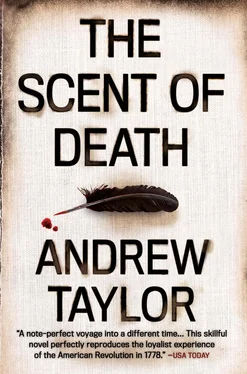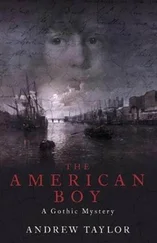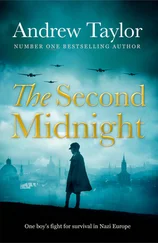‘Fortunate?’ Marryot sniffed. ‘Fortune has nothing to do with it, sir. The army pays for its information. There are always men in want of gold.’
‘Can you be sure that the information is accurate, sir?’ I asked.
‘Little is certain in this world, sir, but the fellow we have in custody is certainly a rogue.’
We heard the stamp of marching feet outside. There was a knock on the door. At Marryot’s word, two soldiers entered with a small negro between them. He was cuffed at the wrists and swaying from side to side. When the soldiers came smartly to attention in front of the table, he collapsed on the floor in a huddle of limbs and filthy clothes.
‘Pull him up,’ Marryot ordered.
The soldiers hooked their arms under the prisoner’s shoulders and lifted him back to his feet.
‘Master, I didn’t do it, I swear on—’
‘Hold your tongue,’ Marryot roared. He turned to Noak. ‘You may write this down under today’s date, the fifth of August. And the place and time, of course. That this is the interrogation of a negro slave, a runaway, name of Virgil, property of the heirs of the late George Selden, esquire, of Queens County.’
The man whimpered. His cheeks glistened with tears. He wore filthy canvas breeches, loose at the knee, and a torn shirt. The feet were bare and the toes widely splayed. I wanted to look away but found I could not.
Townley took a silver toothpick from his waistcoat pocket and began to clean his teeth.
‘You are a vagabond, are you not?’ Marryot demanded. ‘Don’t speak unless I tell you – just nod.’
Virgil’s head drooped.
‘You absconded from your master when he was in Brooklyn the summer before last. And you’ve been living in Canvas Town with the rest of the rogues and knaves ever since.’ Marryot glanced down the table. ‘Have you noted that, Mr Noak?’
‘Master, for pity’s sake, I never saw—’
‘Hold your peace – I didn’t tell you to speak to me. You will have your chance later. And for God’s sake, stop snivelling or I’ll have you whipped.’
Noak scribbled.
‘Strike those last words out, Mr Noak,’ Marryot snapped. ‘They are not part of the record.’
Townley leaned back in his chair. ‘What evidence is against the man?’
‘All in good time, sir.’ Marryot put his elbows on the table and leaned towards the prisoner. ‘Tell me where you were last Sunday. Tell me what you did, what you saw.’
‘I was in Canvas Town, your honour. And I walked about the city looking for work. And then I went back to Canvas Town and fell asleep with nothing in my belly.’
‘Your belly looks plump enough to me,’ Townley observed, fanning himself with his handkerchief.
Marryot ignored the interruption. ‘That may be where you were but it’s not what you did. You’re a thief, a damned pickpocket. There were two empty purses in your bundle. And those shoes you had on your feet – well, they tell their own story, don’t they?’
‘Eh?’ Townley said. ‘What shoes? Nobody mentioned any shoes.’
‘Mr Noak,’ Marryot said. ‘Have the goodness to open the press and bring us what you find on the third shelf down.’
The press was a tall cupboard in an alcove by the empty fireplace. Noak took out a pair of black round-toed shoes with plain steel buckles on the flaps. He set them down on the table. The prisoner moaned softly at the sight of them. Marryot stretched out a hand and removed a small leather bag from one of the shoes.
‘So,’ he said. ‘When they brought you in last night, these shoes were on your feet.’
I picked up one of the shoes. The uppers were scuffed and creased. The sole needed reheeling. But the leather was good.
‘We had information that these shoes belonged to Mr Pickett,’ Marryot said. ‘I had them sent over to Beekman Street this morning. The kitchen boy who cleans the shoes is sure that these were Pickett’s.’
‘Information?’ I said. ‘From whom, sir?’
‘It don’t signify, sir. All that signifies is that the information is good. You’ll grant me that, I hope?’
Virgil lifted his head and, for the first time, looked directly at me.
‘You need not enter Mr Savill’s questions into the record either, Noak,’ Marryot said.
He untied the drawstring that fastened the bag and upended it. A heavy gold ring dropped on the palm of his hand.
‘It’s a seal ring,’ he said, holding it up between finger and thumb. ‘It has a stag incised on it. The woman at the house where he lodges, the Widow Muller, swears it’s Pickett’s. He wore it on his left hand and she noted it most particularly – he was behind with what he owed, and when he said he could not pay directly, she asked him why he did not turn his ring into guineas and be done with it.’
‘I never seen it, master, I swear, sir. Hope to die, God’s my—’
‘But the shoes?’ I interrupted. ‘You’ve seen those before?’
The prisoner glanced at me again. ‘Yes, sir.’
‘Of course he had,’ Marryot put in. ‘They were on his damned feet when they arrested him.’
‘And where did you get them, Virgil?’ I said.
‘I – I found them, your honour.’
‘On Mr Pickett’s body?’
‘Yes, sir. Poor gentleman was lying there, all dead. I thought he didn’t need them, so what’s the harm? Look, sir.’ He pointed down at his feet. ‘I lost a toe to frostbite last winter.’
‘He was dead because you’d killed him,’ Marryot said. ‘That’s how you knew, eh? So you helped yourself to his shoes and took the ring off his finger as well.’
‘No, sir, weren’t no ring when I found him.’
‘Then why was the ring in your bundle?’
Virgil shook his head violently. ‘Didn’t put it there, master, swear by—’
‘Hold your tongue, damn you.’ Marryot looked at the soldiers, who were staring blankly at the wall behind the table. ‘Take him away. Keep him in irons.’
No one spoke until the guards had led out the prisoner. Marryot stood up and went to the window.
‘Well, gentlemen,’ he said, still with his back to the room. ‘This need not detain us much longer, I think? The evidence points to the knave’s guilt.’
‘No rational man could entertain a doubt about it,’ Townley said, yawning. ‘If someone else had killed him, he would not have left the ring on Pickett’s finger. Shall Noak write you out a fair copy of the proceedings?’
‘I’d be obliged.’
Mr Noak dipped his head.
‘When you write it up, you should mention that Mr Savill of the American Department was present as an observer,’ Marryot went on, turning to face us. ‘But anything he said may be omitted.’
‘Now what?’ I said.
‘Why, sir, what do you think?’ Marryot said. ‘We wait and let the law take its course. Martial law, that is.’
On the night of Wednesday, I heard the child crying again. In the morning, I mentioned it to Josiah, the older of the two manservants. It must be one of the neighbour’s infants in the slave quarters, he said – he would investigate and have the nuisance abated. I said he should not trouble himself; it did not matter in the least.
The administration had found me an apartment to use as an office in a house it leased at the eastern end of Broad Street, not far from the City Hall. It was a pokey chamber up two pairs of stairs. My first caller was already waiting for me – a clergyman from Connecticut whom the rebels had turned out of his parsonage and parish. His crime had been to preach a sermon whose text had been Luke Chapter 20, verse 25. ‘And he said unto them, Render therefore unto Caesar the things which be Caesar’s, and unto God the things which be God’s.’ Caesar in this case was intended to be taken as George III rather than Congress. The poor man had lost all he owned, including a farm he had inherited from an uncle.
Читать дальше












